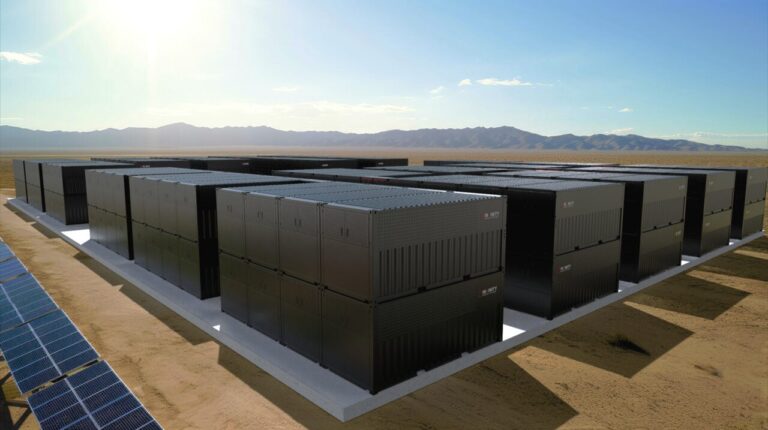Invinity Energy Systems’ new vanadium redox flow battery (VRFB) technology enables renewable energy sources to replace conventional grid generation 24/7, the company claims.
Anglo-American flow battery company Invinity today launched its new product Endurium. It follows approximately three years of R&D, testing and prototyping, during which Invinity collaborated with Siemens Gamesa on technology development.
The company is designed for high energy throughput with unlimited cycles and with a reduction of at least 50% of the footprint required for installation at project sites. The company says it can cost-competitively address the current energy storage markets and emerging long-term energy storage (LDES) markets. ) opportunities equal.
London Stock Exchange-listed technology provider and manufacturer’s Chief Commercial Officer Matt Harper and Senior Director of Corporate Affairs Joe Worthington spoke to a sister site Energy storage.news.
“It’s a huge step forward for us,” Harper said of Endurium’s launch.
“As a company, we have always desired to be able to provide renewable energy sources, and especially solar energy, on demand 24 hours a day, 7 days a week, to replace any other form of generation on the grid.”
The capabilities an energy storage technology needs to achieve that goal are a combination of long storage life, high battery throughput, long lifespan and “ultimately responsible costs,” the CCO said.
Although the fundamental technology, including vanadium electrolyte chemistry, has not changed except for some incremental improvements, the partnership with sustainable engineering specialists Siemens Gamesa has enabled significant improvements in system integration, according to Harper and Worthington.
That can be seen in the footprint reduction, which Worthington says is about 50% in the most conservative scenario compared to Invinity’s previous designs.
According to Harper, the work done with its partner to integrate how individual battery modules work together and how they connect to the inverter or power conversion system (PCS), as well as the safety profile of non-flammable flow batteries, means that a tighter site configuration is needed. possible than before.
Other claimed benefits include improvements in module balancing, and, again, unlike lithium-ion batteries where only estimates can be made, it is possible to accurately measure how much energy is stored at any given time.
Invinity’s representatives said that while the perceived benefits of flow batteries are often considered in the context of long-duration applications, the higher throughput and continuous cycles that Endurium is capable of make it suitable for the type of revenue stacking applications that lithium-ion BESS can lead. market has already evolved.
Invinity was formed by the merger of Canada-based Avalon Battery and British redT in 2020. The company has two manufacturing and assembly facilities in Scotland, from which it is growing production capacity of more than 500MWh of systems per yearwhile the annual production capacity from Vancouver, Canada, amounts to 200 MWh after an expansion completed in 2023.
To read the full version of this story, visit Energy storage.news.


